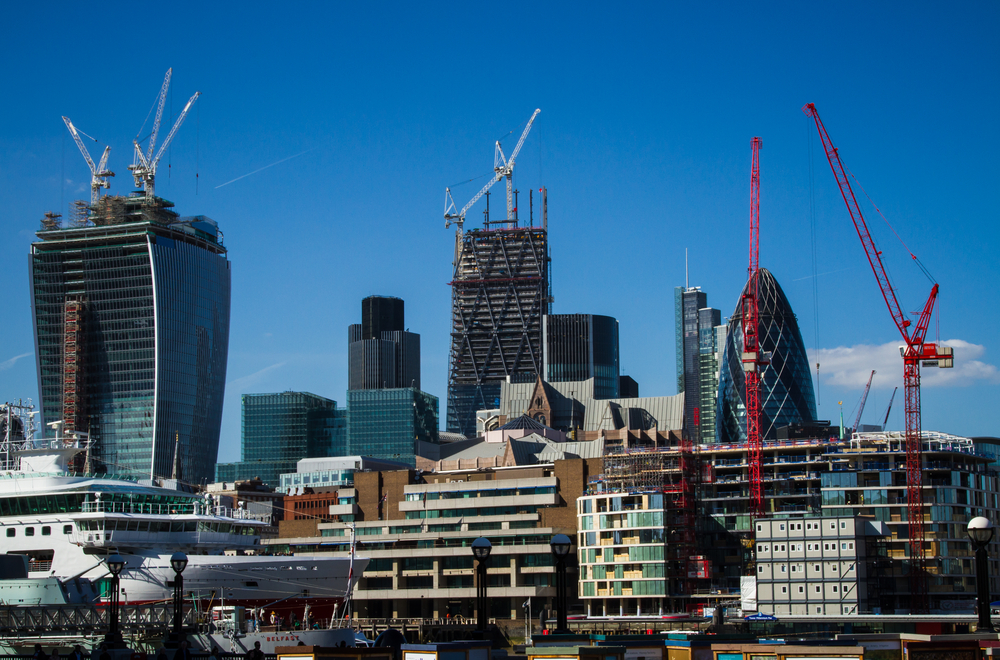News - Construction News
London construction costs ease despite Brexit

Figures released from the Turner & Townsend International Construction Market Survey 2018 predict that while construction costs will continue to rise in the capital, the rate will ease to 2.8%, 1.1% lower than in 2017.
With Brexit looming, the construction industry is carefully watching what affect it will have on costs and the labour market. The latest survey conducted by Turner & Townsend show that London’s construction costs remain higher than the rest of the country, creating a two-tier construction market where London construction costs are 27.7% higher than the UK average. London remains the fifth most expensive place to build in the world, behind New York, San Francisco, Hong King and Zurich.
Leading the higher rates is labour, with costs for skilled labour rising by 3.1% across the UK and London remaining the most expensive place to secure labour, with an average £34.00 per hour paid in the capital. The five top cities within the report have seen labour rates rocket by ten per cent in the last year, with New York construction workers commanding an average cost of labour of US$98.30 per hour. Overall, more than half of the markets within the survey report a skills shortage.
Elsewhere in the UK, devolution seems to be supporting a flurry of investment in infrastructure and housing. Key cities, including Manchester and Birmingham (the new base for HS2) have seen rising construction costs.
Globally, Turner & Townsend’s International Construction Market Survey forecasts that construction costs will rise 4.3% as economic growth unlocks new projects in key markets – placing pressure on labour and resources. Almost half (46%) of markets surveyed are shown to be heating up, with a large number of projects pushing up prices.
Through analysis of the results Turner & Townsend suggest that industry needs to incentivise innovation in materials and methods to control costs.
Steve McGuckin, Global Head of Client Programmes at Turner & Townsend said that fundamental changes were needed to the UK and global industry: “Global GDP growth of 3.9% is driving a resurgence in construction activity across international markets. While this uptick will inevitably push up costs, inflation is being exacerbated by skills shortages: put simply, we need to do more work with fewer workers.
“In the UK the skills challenge continues to contribute to cost inflation. We need to adopt digital tools, modern manufacturing methods and automation if we are to ease the pressure on resources and help attract new talent to our dynamic sector.
“We need a fundamental shake up of the industry model to incentivise this investment, otherwise there is every excuse not to change. Projects need to be set up to deliver better performance from the construction supply chain – rewarding innovation in methods and materials which ensure better outcomes for the communities we build for.”
If you would like to read more articles like this then please click here.
Related Articles
More News
- UK Introduces New Trade Measures to Support Steel Sector
11 Jul 25
Steel producers across the UK will benefit from stronger trade measures from 1 July.
- Clean energy future to be ‘built in Britain’
10 Jul 25
The Clean Energy Industries Sector Plan comes into force to ‘build it in Britain’.
- Thousands more to get the tools they need to start construction careers
9 Jul 25
Thousands of people are set to benefit from on-the-job training and career opportunities in the






